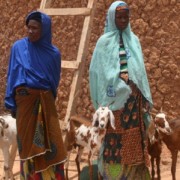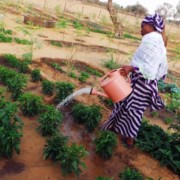
Niger consistently ranks at or near the bottom of the United Nations Development Program’s Human Development Index. Chronic food insecurity and infectious disease have resulted in some of the highest rates of malnutrition and mortality in the world. Over forty percent of children under five are chronically malnourished and the rates of acute malnutrition are well beyond the threshold for public health emergencies. In addition, Niger has the highest fertility rate in the world. Left unchecked, Niger’s rapid population growth will further undermine health service delivery and weaken the resilience of the most vulnerable populations.

The vast majority of Nigeriens rely on subsistence agriculture and the region’s frequent droughts lead to poor harvests and regular food shortages. Chronic food insecurity and infectious disease have resulted in some of the highest rates of malnutrition and mortality in the world. As of January 2015, United Nations estimates placed Niger’s food-insecure population at nearly 3.4 million people.

Niger experiences low and variable rainfalls, land degradation, deforestation and desertification. The vast majority of Nigerians depend on agriculture for their livelihoods, and frequent droughts in the region often damage crop yields, leading to food shortages in the country. Chronic food insecurity and a high prevalence of infectious diseases have led Niger to record some of the highest malnutrition and mortality rates in the world. According to United Nations estimates, nearly 3.4 million Nigeriens are chronically food insecure.

Following Niger’s return to democratic rule in 2010, the Government of Niger committed to fighting corruption, increasing transparency, and ensuring that proper management of the country’s natural resources benefits all Nigeriens. Niger’s National Assembly plays a key role in advancing reforms needed to strengthen governance and consolidate recent democratic gains vital to furthering the country’s development. The potential revenue from extractive industries in Niger is of great importance to the economic growth of the country, and as a result, the efficient and transparent management of these industries plays a key role in Niger’s future.








Comment
Make a general inquiry or suggest an improvement.